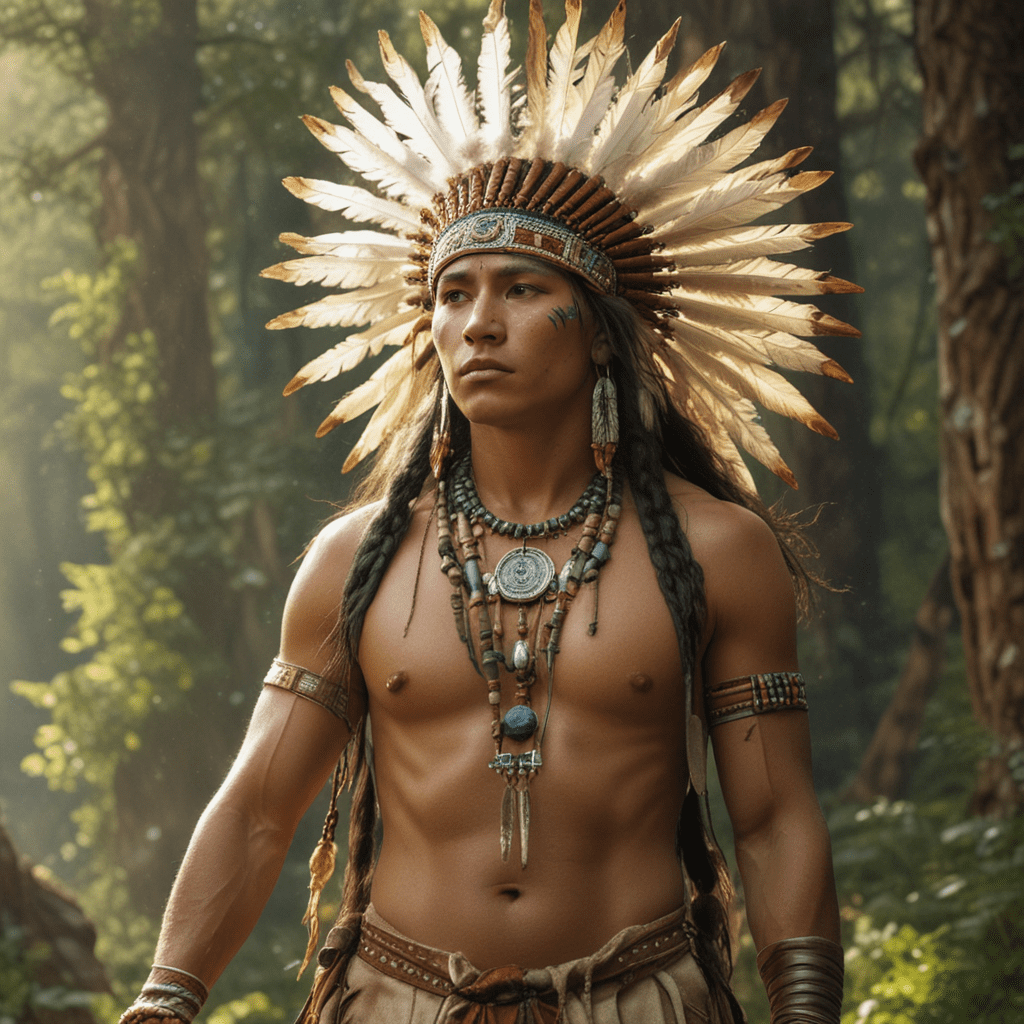Origins and Creation Stories
The Land as Foundation of Identity: In Native American cultures, creation stories often establish a profound connection between the land and the origins of the tribe. Land is perceived as the birthplace, the sacred space where the tribe emerged and its ancestors dwelled. It forms the foundation upon which the tribe's identity is built, shaping their beliefs, values, and way of life.
Land as Sacred and Ancestral
A Divine Gift from the Creator: Native American mythology frequently depicts the land as a sacred gift from the Creator. It is imbued with spiritual power and considered a living entity with its own consciousness and spirit. The land is revered as the dwelling place of ancestors, who watch over and guide the tribe. Many rituals and ceremonies are performed to honor the land and maintain its sacred nature.
Spiritual Connections to the Earth
Inherent Harmony and Interdependence: Native American mythology emphasizes the interconnectedness of all living beings and the environment. The land is seen as an integral part of this web of life. Individuals and tribes have spiritual relationships with specific places, plants, and animals, forming a deep bond with the natural world. These connections foster a sense of harmony and responsibility toward the land.
Identity Tied to Tribal Territories
Land as a Marker of Tribal Identity: Tribal territories define the physical and cultural boundaries of a Native American tribe. The land embodies the tribe's unique history, traditions, and language. It serves as a symbol of their sovereignty and cultural heritage. Displacement from traditional territories often results in a profound loss of identity for Native American communities.
Displacement and Loss of Identity
Traumatic Forced Removals: Native American history is marked by forced removals from ancestral lands. These displacements have had devastating consequences for tribal identities. The loss of land has led to the erosion of cultural practices, language loss, and a sense of uprootedness. Reclaiming and restoring connections to traditional territories often becomes a central focus for Native American communities seeking to revitalize their identities.
Resistance and Reclaiming of Land
Fighting for Sovereignty and Identity: Native American tribes have fought tirelessly to resist forced removals and reclaim lost territories. These struggles are central to their efforts to preserve their cultural heritage and restore their sense of identity. Land rights activism and legal battles have been instrumental in this ongoing fight for sovereignty and self-determination.
Land as a Source of Nourishment and Sustenance
Subsistence and Cultural Practices: The land provides sustenance and supports the cultural practices of Native American tribes. Traditional hunting, gathering, and farming practices are essential for maintaining their way of life. The land is seen as a provider, a source of food, medicines, and materials for shelter and clothing.
Land as Memory and History
A Living Record of the Past: The land holds memories of past events and generations. Sacred sites, burial grounds, and other landmarks serve as physical reminders of the tribe's history and connection to the land. Landscapes carry stories of ancient battles, migrations, and cultural practices, shaping the collective memory and identity of the tribe.
Stewardship and Environmentalism
Guardians of the Land: Native American cultures emphasize the importance of stewardship and environmental protection. They view themselves as caretakers of the land and have a deep understanding of sustainable practices. Traditional knowledge and spiritual beliefs guide their approach to land management, emphasizing balance and harmony with the natural world.
Contemporary Manifestations of the Land-Identity Connection
Cultural Revitalization and Heritage Preservation: The connection between land and identity continues to shape Native American communities today. Cultural revitalization efforts often focus on reconnecting to traditional territories, preserving languages and traditions, and passing on knowledge to future generations. Land-based education programs and community initiatives promote a deep understanding of the land and its cultural significance.
FAQ
Why is the land so important to Native American tribes?
- The land is the birthplace and sacred space where tribes emerged and their ancestors dwelled. It forms the foundation of their identity, shaping beliefs, values, and way of life.
How have forced removals impacted Native American identity?
- Displacement from traditional territories has led to the erosion of cultural practices, language loss, and a profound sense of uprootedness. Reclaiming connections to traditional territories is vital for revitalizing identities.
How do Native American tribes fight for land rights?
- Tribes engage in land rights activism, legal battles, and negotiations to resist forced removals and reclaim lost territories. These efforts are central to preserving cultural heritage and restoring a sense of identity.



